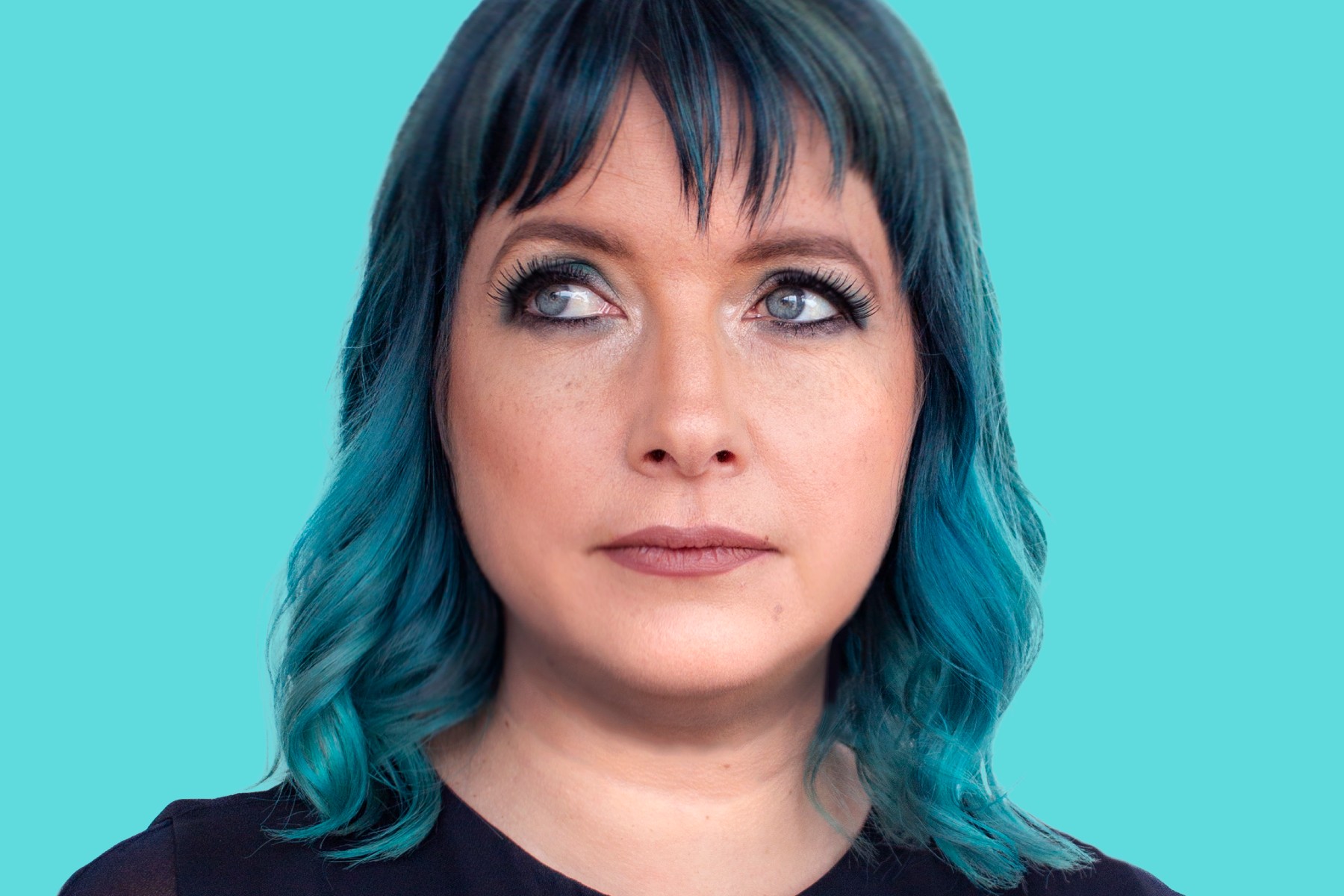- Home |
- Search Results |
- Meet the author: Lauren Beukes

The winner of South Africa’s coveted University of Johannesburg Prize and the Arthur C. Clarke award, Lauren Beukes hardly needs an introduction. Her novels, Moxyland, Zoo City, The Shining Girls and Broken Monsters have seen her bringing her literary talent and depth to science fiction, horror and detective fiction, and she’s written non-fiction, comics and TV, too – and all after she honed her skills in journalism.
Beukes’ latest work is gripping new thriller Afterland, a novel about a mother and her son, who she must protect at all cost; he’s one of the last living men left on Earth.
With Afterland now out, we asked Beukes a few questions about her work and life, which has so far included idyllic Oman escapes, Botswana beauty pageants, and – from the sounds of it – lots of bellowing the songs from Hamilton.
Which writer do you most admire and why?
My 11-year-old daughter is obsessed with Hamilton and sings it every day and texts me the lyrics, in case I’ve forgotten them, so that’s the first name that came to mind – especially the bit about how he writes all the time, ‘like he’s running out of time’. I’m envious of this fictional depiction of a real-life historical character, with so much drive and to whom the words seem to come so easily, because I find writing hard and lonely. (Thanks a lot for rubbing it in, Lin-Manuel Miranda!) In real-life writers: Margaret Atwood for her chameleonic abilities, in creating her own damn genre, the Atwood novel, and her writing. God, her writing.
What’s the strangest job you’ve had outside being an author?
I’ve had strange experiences working as a journalist if that counts, hanging out with wannabe teenage vampires, Miss HIV+ beauty pageant queens in Botswana, and a scary self-appointed vigilante group of ex-militia in the Cape Flats. I’m really grateful to journalism for teaching me to write, to find the heart of a story, to develop an ear for dialogue and an eye for detail, and understand how other people think differently.
Tell us about a book you’ve reread many times.
Nimona by Noelle Stevenson, which is one of my daughter’s favourites. It’s a dark and witty and deeply humane fairytale about a wannabe villain and his dangerous shape-shifting henchgirl who has to come to terms with her own monstrous nature. It gets a small cameo in Afterland as the graphic novel nine-year-old Miles is reading aloud to his dead father to keep him company.
What the best piece of writing advice you’ve ever been given?
Writers write.
What makes you most happy?
Being with my daughter, singing Hamilton (badly), playing video games, reading books, watching TV shows, and hanging out with my friends for all the same joys: deep conversation, witty banter, being silly and playful and vulnerable and real.
What’s your biggest regret?
I wish I’d gone to university properly, when I was younger. I started doing my undergraduate degree while working full time as a journalist when I was 24, and the head of the English Department bumped me to the Masters programme in Creative Writing. It was amazing to be taken seriously as a writer, and to have that opportunity, but damn, I loved studying – although I already felt too old at 24 among my fellow students who were all 18.
What’s your ideal writing scenario?
My best-ever writing experience was a very costly mini retreat with my friend Sophia Al-Maria (showrunner on Little Birds) in this ridiculous hotel in Oman with three different swimming pools. It’s become my gold standard: writing poolside, with full service, and a choice of clear water to sink into. But, alas, it’s not exactly sustainable, so I’ll settle for my normal day, pre-lockdown, which was going into a shared studio space with beloved friends so I had a focused space to write outside of my home that is also social, where I can talk over plot points or have human conversations specifically not about plot points.
...and your ideal reading one?
Anywhere. Public transport is ideal, trains and planes, in the passenger seat of a car, in bank queues on my phone, poolside at a ridiculous hotel in Oman, snuggled in bed with my daughter reading comics, in a hammock by the lake, or a cosy mountain cabin with a roaring fire. It doesn’t really matter, because all of that falls away when I fall into a book.
What’s your favourite book you’ve read this year?
N.K. Jemisin’s The City We Became was the first book I was able to read during the early days of lockdown when my brain was a frantic rabbit in my skull. She wove such a rich, fantastical world out of our own that was so smart and so interesting I couldn’t help but get lost in it.
What inspired you to write your book?
It was a chance to interrogate this idea that if all the men died, a world of women wouldn’t necessarily be a kinder, gentler place with friendship bracelets and communal gardens. It didn’t feel like a radical idea to me: acknowledging that women are fully human and just as capable of being power-hungry, corrupt, incompetent and evil as men are, especially if it takes place only three years removed from our current reality and its systemic problems and embedded power structures. I also wanted to gender-flip the narrative on the teenage girl in peril story. In Afterland, it’s a 12-year-old boy who is being dehumanised, sexualised, with government trying to control his choices about his body, and at the risk of being trafficked. I hope it will give us a way to think about all those things differently and be a helluva ride.
Afterland by Lauren Beukes is out now.